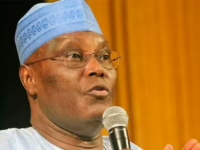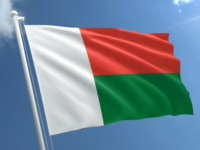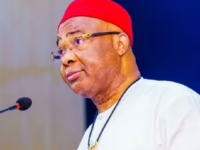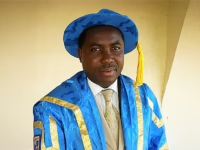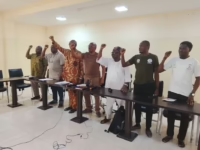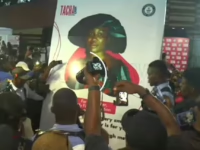The recent presidential pardon extended to Maryam Sanda has sparked widespread outrage across Nigeria. Sanda was sentenced to death by hanging in 2020 after being found guilty of murdering her husband, Bilyaminu Bello, in their Abuja home on November 19, 2017.
On Thursday, President Bola Tinubu granted clemency to 175 inmates, including Maryam, exercising his constitutional power of mercy. Maryam Sanda, daughter of Maimuna Alliyu, former head of Aso Savings, was convicted by the High Court of the Federal Capital Territory for fatally stabbing Bello, the son of ex-Peoples Democratic Party (PDP) national chairman Haliru Bello, during a domestic altercation.
Justice Yusuf Halilu, who presided over the case, ruled that the prosecution had sufficiently proven that Maryam’s use of a kitchen knife to kill her husband warranted the death penalty. Prior to receiving the pardon, Maryam had spent nearly seven years at Suleja Medium Security Custodial Centre awaiting execution.
In defense of the pardon, Bayo Onanuga, the President’s Special Adviser on Information and Strategy, stated that Maryam’s family petitioned for her release, emphasizing the welfare of her two children. He also highlighted her exemplary behavior in prison, genuine remorse, and adoption of a reformed lifestyle as reasons supporting the clemency.
Despite these explanations, many Nigerians have expressed deep dissatisfaction, accusing the government of favoritism influenced by Maryam’s affluent background and political connections. Critics argue that this pardon exemplifies a double standard in the justice system.
Several voices contrasted Maryam’s release with the continued detention of Mazi Nnamdi Kanu, leader of the banned Indigenous People of Biafra (IPOB), who remains imprisoned without conviction. This disparity has fueled accusations of selective justice and political bias.
Omoyele Sowore, former African Action Congress presidential candidate, condemned the pardon as blatant hypocrisy. He pointed out that while Maryam, a convicted murderer, was freed, Nnamdi Kanu languishes in custody awaiting a trial many consider unjust.
Many Nigerians took to social media to voice their frustration. One user remarked, “This pardon may appear merciful on the surface, but in a nation where justice favors the influential, it becomes a symbol of privilege rather than principle.” Another highlighted the plight of countless ordinary inmates serving harsh sentences for minor offenses, who receive no such clemency or public sympathy.
Others lamented the government’s refusal to grant Nnamdi Kanu similar mercy, despite his unconvicted status, describing it as a glaring example of selective morality that erodes trust in the legal system. Some users accused the pardon of undermining democracy by privileging the connected while punishing dissenters.
There were also ethnic tensions voiced, with some commentators accusing certain groups of harboring prejudice against the Igbo community, linking opposition to Kanu’s release with ethnic bias rather than legal grounds.
Calls for transparency and fairness echoed strongly, with demands that pardons be based on clear legal justification rather than political influence. Many stressed that justice must be impartial, blind to status or ethnicity, and that victims’ rights should remain paramount.
Critics also pointed out that the majority of those pardoned were involved in serious crimes such as drug trafficking, kidnapping, and corruption, raising concerns about the message this sends to society. Some argued that the pardon list was likely influenced by insiders, allowing privileged individuals to evade full accountability.
Others drew parallels with previous mass pardons, such as the release of repentant Boko Haram members, questioning why political prisoners like Nnamdi Kanu remain incarcerated while convicted criminals walk free.
In summary, the pardon of Maryam Sanda has reignited debates about justice, fairness, and political influence in Nigeria’s legal system. Many Nigerians demand a justice system that holds everyone equally accountable, without favoritism or prejudice, and that respects the rule of law above all.







